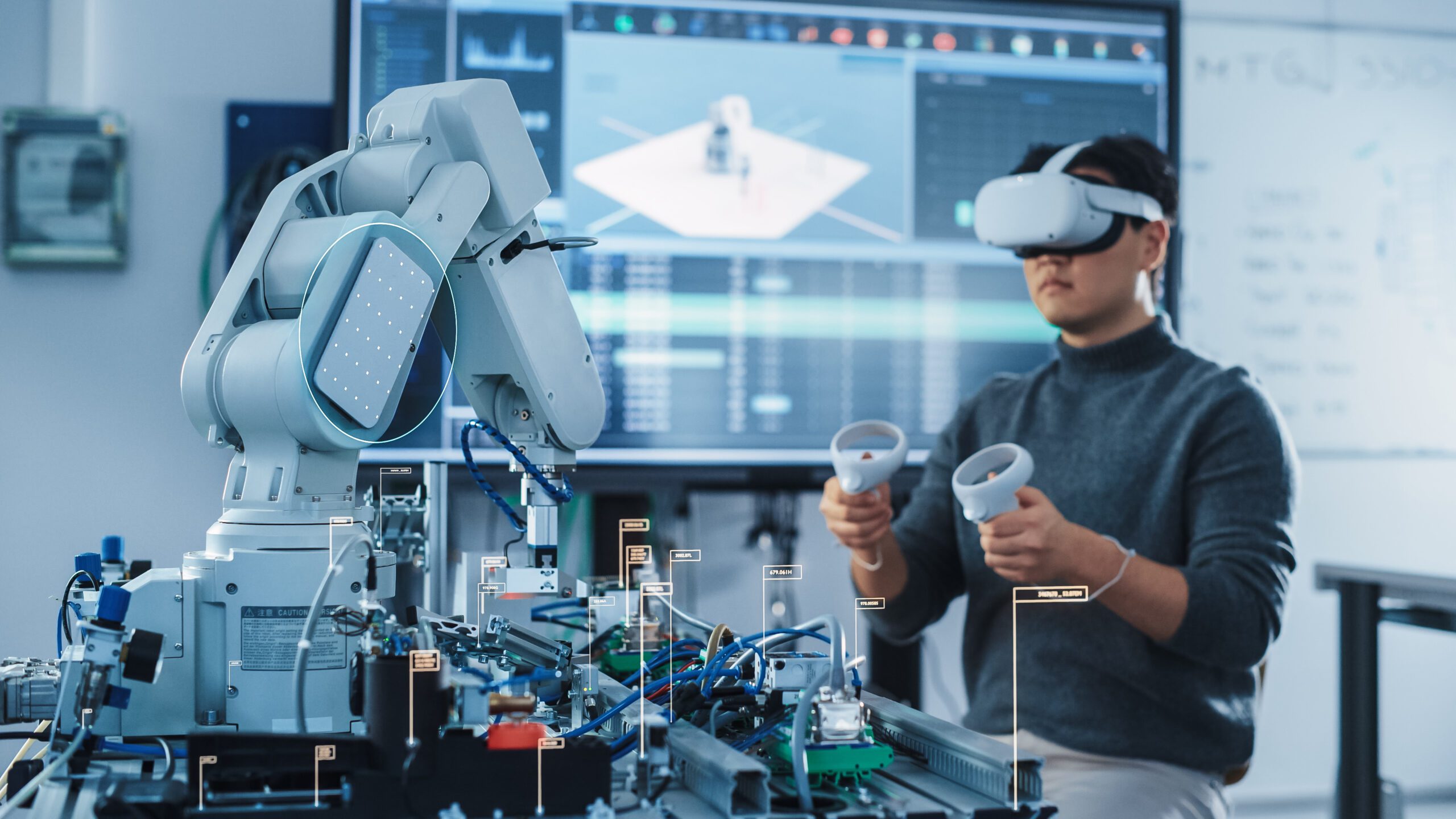Virtual Reality (VR) is transforming the educational landscape by providing immersive, interactive, and effective training and work-based learning solutions. This technology is particularly valuable in developing practical skills, offering students experiences that go beyond traditional learning methods.
%
Reduction in Training Time
%
More Confident in Applying Knowledge
The Benefits of VR Training
1. Accelerated Learning: VR can significantly reduce training time. According to a PwC study, VR learners complete training up to four times faster than in the classroom.
2. Improved Confidence and Retention: VR learners are 275% more confident in applying what they’ve learned, with higher retention rates compared to traditional methods.
3. Emotional Engagement: VR training creates a deep emotional connection, making the learning experience more impactful and memorable.
4. Focus and Immersion: In a VR environment, learners are less distracted and more focused, leading to better outcomes. VR eliminates the typical distractions found in other learning settings.
5. Cost-Effectiveness at Scale: While initial VR setup costs can be high, the technology becomes cost-effective as the number of learners increases. For instance, VR training is 52% more cost-effective than classroom training when scaled.
Applications in Education
1. Skill-Based Training: VR is excellent for teaching both hard and soft skills. From technical skills like equipment maintenance to soft skills like leadership and communication, VR provides realistic scenarios for practice.
2. Remote and Hybrid Learning: With the shift towards remote learning, VR offers a viable solution for hands-on training without the need for physical presence.
3. Inclusive and Safe Learning Environment: VR allows students to practice in a safe environment, reducing the stress and anxiety associated with real-world scenarios.
Case Study: Inclusive Leadership Training
PwC’s study on VR for inclusive leadership training found that VR learners were more engaged and confident. They felt more connected to the content, which led to better learning outcomes compared to traditional and e-learning methods.
Future Potential
As VR technology advances, its applications in education will expand. The rise of the metaverse offers new opportunities for collaborative and immersive learning experiences, further enhancing the educational landscape.
Conclusion
Virtual Reality is revolutionizing education by providing immersive, engaging, and effective training solutions. Its ability to accelerate learning, improve retention, and offer cost-effective solutions at scale makes it a valuable tool for enhancing practical skills in education. As VR technology continues to evolve, its impact on education will only grow, offering new possibilities for immersive learning experiences.
For more insights on the impact of VR in education, visit PwC’s Virtual Reality Study.
To learn more about implementing Virtual Reality in your school, please schedule a meeting with us below.

